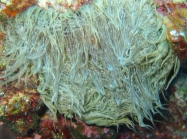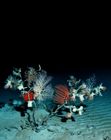Scheldt species taxon details
Gastropoda
- Subclass Caenogastropoda
- Subclass Heterobranchia
- Subclass Patellogastropoda
marine, brackish, fresh, terrestrial
Cuvier, G. 1795. Second Mémoire sur l'organisation et les rapports des animaux à sang blanc, dans lequel on traite de la structure des Mollusques et de leur division en ordre, lu à la société d'Histoire Naturelle de Paris, le 11 prairial an troisième [30 May 1795]. Magazin Encyclopédique, ou Journal des Sciences, des Lettres et des Arts, 1795 [1. année] 2: 433-449., available online at http://www.biodiversitylibrary.org/page/6736775
page(s): 448 [details]
page(s): 448 [details]
Scheldt species (2025). Gastropoda. Accessed at: https://www.scheldemonitor.nl/speciesregister/aphia.php?p=taxdetails&id=101 on 2025-09-11
VLIZ Consortium. Scheldt Species Register. Gastropoda. Accessed at: https://www.scheldemonitor.nl/speciesregister/aphia.php?p=taxdetails&id=101 on 2025-09-11
Date
action
by
2004-12-21 15:54:05Z
created
db_admin
original description
Cuvier, G. 1795. Second Mémoire sur l'organisation et les rapports des animaux à sang blanc, dans lequel on traite de la structure des Mollusques et de leur division en ordre, lu à la société d'Histoire Naturelle de Paris, le 11 prairial an troisième [30 May 1795]. Magazin Encyclopédique, ou Journal des Sciences, des Lettres et des Arts, 1795 [1. année] 2: 433-449., available online at http://www.biodiversitylibrary.org/page/6736775
page(s): 448 [details]
context source (PeRMS) Ramírez, R.; Paredes, C.; Arenas, J. (2003). Moluscos del Perú. <em>Revista de Biologia Tropical.</em> 51(supplement 3): 225-284. [details] Available for editors
basis of record Bouchet, P. & Rocroi, J.-P. (2005). Classification and nomenclator of gastropod families. <em>Malacologia.</em> 47 (1-2): 1-397. [20 July]., available online at https://www.biodiversitylibrary.org/page/25127200 [details] Available for editors
additional source Ponder, W. F.; Lindberg, D. R. (1997). Towards a phylogeny of gastropod molluscs: an analysis using morphological characters. <em>Zoological Journal of the Linnean Society.</em> 119: 83-265., available online at https://academic.oup.com/zoolinnean/article/119/2/83/2684302 [details]
additional source Geiger D.L., Marshall B.A., Ponder W.F., Sasaki T. & Warén A. (2007) Techniques for collecting, handling, preparing, storing and examining small molluscan specimens. <i>Molluscan Research</i> 27(1): 1–50. , available online at http://www.um.u-tokyo.ac.jp/hp/sasaki/p/032.pdf [details]
additional source Zapata, F.; Wilson, N. G.; Howison, M.; Andrade, S. C. S.; Jorger, K. M.; Schrodl, M.; Goetz, F. E.; Giribet, G.; Dunn, C. W. (2014). Phylogenomic analyses of deep gastropod relationships reject Orthogastropoda. <em>Proceedings of the Royal Society B: Biological Sciences.</em> 281(1794): 20141739-20141739., available online at https://doi.org/10.1098/rspb.2014.1739 [details]
page(s): 448 [details]
context source (PeRMS) Ramírez, R.; Paredes, C.; Arenas, J. (2003). Moluscos del Perú. <em>Revista de Biologia Tropical.</em> 51(supplement 3): 225-284. [details] Available for editors
basis of record Bouchet, P. & Rocroi, J.-P. (2005). Classification and nomenclator of gastropod families. <em>Malacologia.</em> 47 (1-2): 1-397. [20 July]., available online at https://www.biodiversitylibrary.org/page/25127200 [details] Available for editors
additional source Ponder, W. F.; Lindberg, D. R. (1997). Towards a phylogeny of gastropod molluscs: an analysis using morphological characters. <em>Zoological Journal of the Linnean Society.</em> 119: 83-265., available online at https://academic.oup.com/zoolinnean/article/119/2/83/2684302 [details]
additional source Geiger D.L., Marshall B.A., Ponder W.F., Sasaki T. & Warén A. (2007) Techniques for collecting, handling, preparing, storing and examining small molluscan specimens. <i>Molluscan Research</i> 27(1): 1–50. , available online at http://www.um.u-tokyo.ac.jp/hp/sasaki/p/032.pdf [details]
additional source Zapata, F.; Wilson, N. G.; Howison, M.; Andrade, S. C. S.; Jorger, K. M.; Schrodl, M.; Goetz, F. E.; Giribet, G.; Dunn, C. W. (2014). Phylogenomic analyses of deep gastropod relationships reject Orthogastropoda. <em>Proceedings of the Royal Society B: Biological Sciences.</em> 281(1794): 20141739-20141739., available online at https://doi.org/10.1098/rspb.2014.1739 [details]
 Present
Present  Inaccurate
Inaccurate  Introduced: alien
Introduced: alien  Containing type locality
Containing type locality


